In the wake of another major fish kill in the Ohlanga River estuary in Durban, a consultant for the UPL pesticides and agrochemicals group has confirmed that records of the company’s treated water discharges into the river have been altered substantially.
The data “corrections” were made on Tuesday, 9 April 2024, several days after large numbers of marine and freshwater fish washed up dead in the estuary and along popular Umhlanga swimming beaches over the weekend.
These revisions to UPL’s previously reported water discharge readings came to light after Daily Maverick received information that significant volumes of treated water from the company’s pollution control dam in Cornubia were released into the river over a three-day period immediately prior to the fish kill.
However, UPL has insisted that there is no link between these events and has issued a media statement suggesting that untreated sewage leaks from the eThekwini municipality are most likely to blame for the fish kill. (See UPL’s full media statement here.)
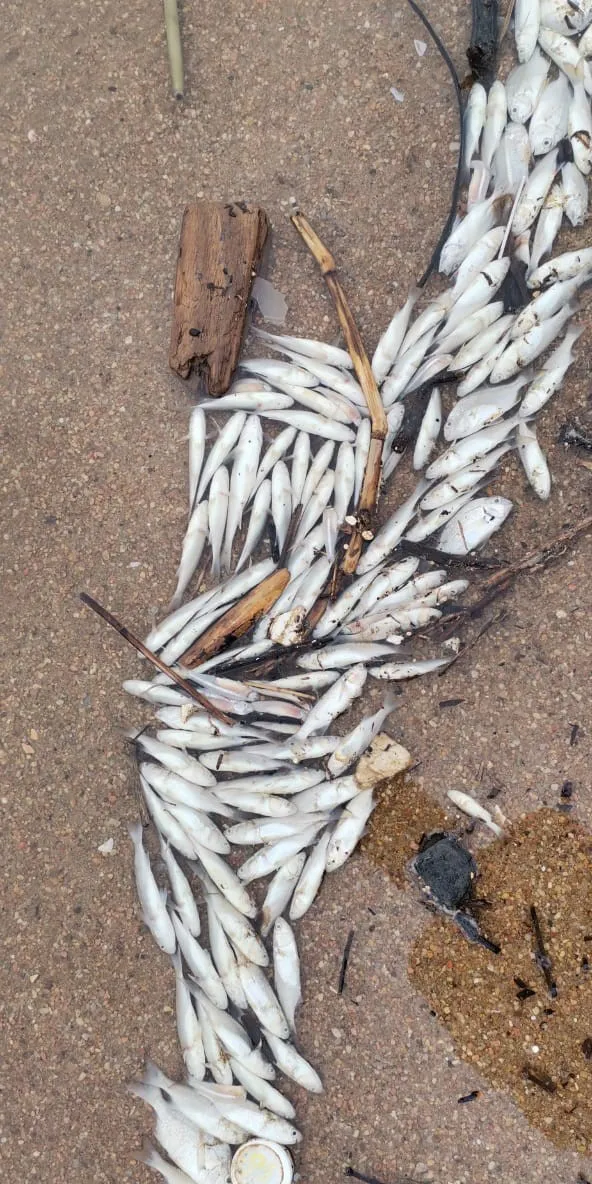 Dead fish in the Ohlanga River estuary in Durban. (Photo: Supplied)
Dead fish in the Ohlanga River estuary in Durban. (Photo: Supplied)
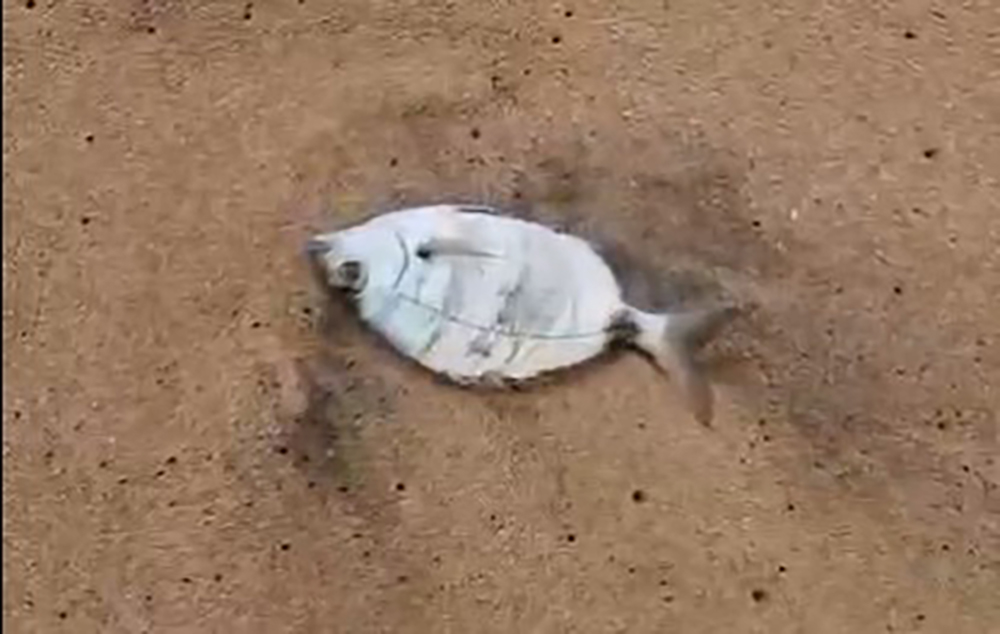 Dead fish on the Umhlanga tourist beach near Granny’s Pool. (Photo: Supplied)
Dead fish on the Umhlanga tourist beach near Granny’s Pool. (Photo: Supplied)
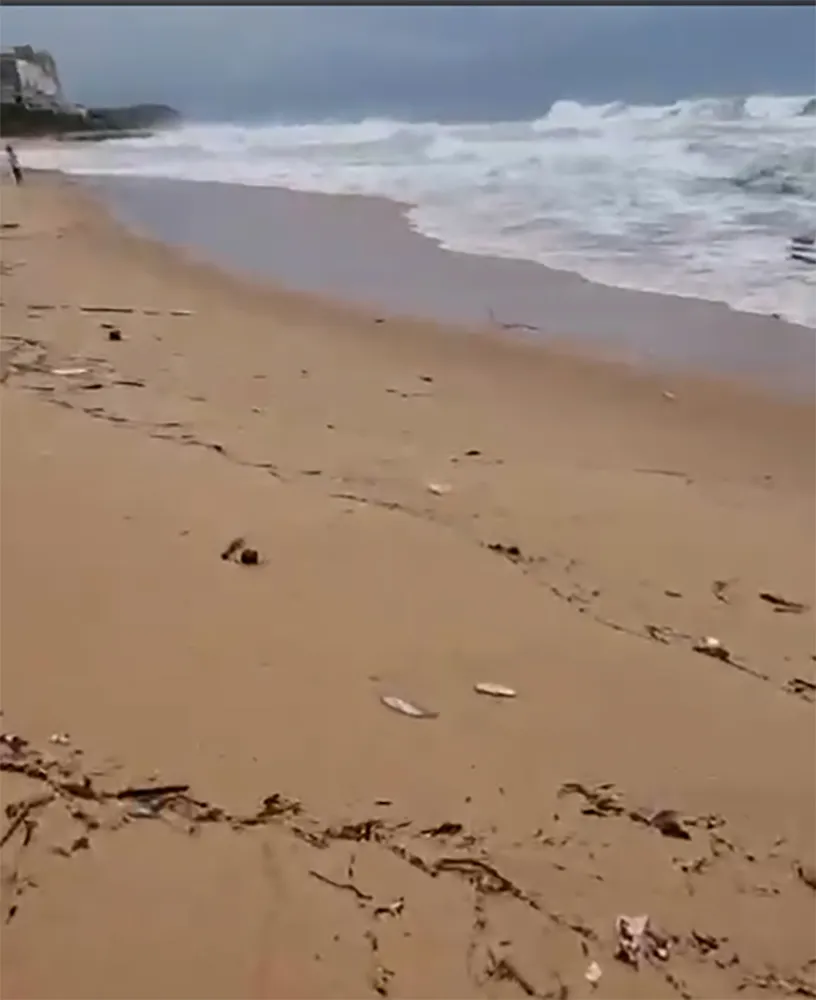 Dead fish on the Umhlanga tourist beach near Granny’s Pool. (Photo: Supplied)
Dead fish on the Umhlanga tourist beach near Granny’s Pool. (Photo: Supplied)
Read more in Daily Maverick: UPL asked to explain how ‘Agent Orange’ war poison chemical ended up in Durban river
To verify the information we received about the high volume of treated water released from the UPL facility, we asked the company to provide us with its own official data for the last three weeks.
This treatment facility, housed in mobile shipping containers at Cornubia, uses ultraviolet light, ozone and other treatment methods to purify pesticide-polluted stormwater emanating from the soil and gutted remnants of the UPL chemical warehouse set alight by arsonists in the July 2021 riots.
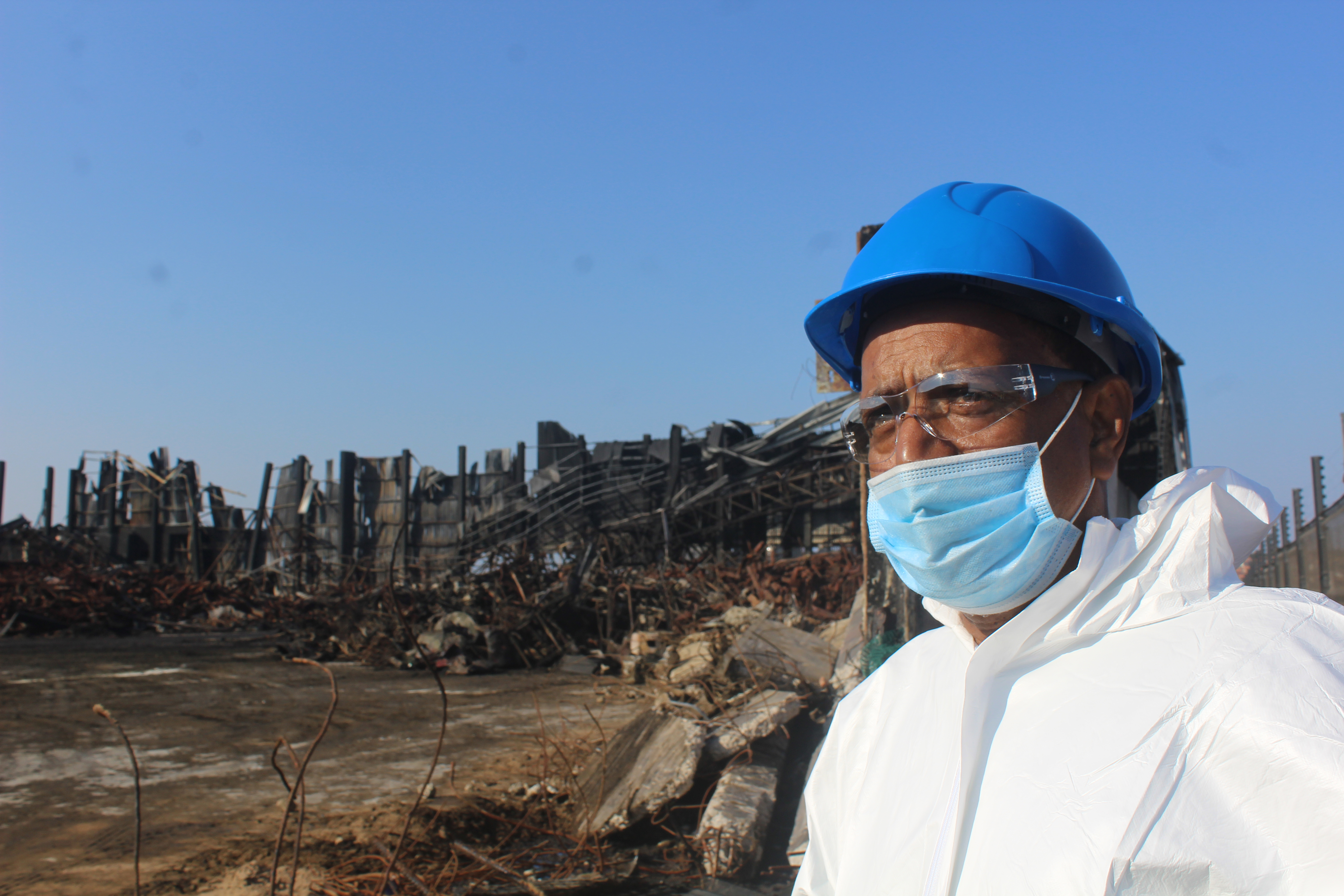 Environmental activist Desmond D’Sa at the burnt UPL warehouse. (Photo: Tony Carnie)
Environmental activist Desmond D’Sa at the burnt UPL warehouse. (Photo: Tony Carnie)
More than 4,000 tonnes of pesticides and other farm products were set alight during the arson attack.
However, the eThekwini municipality has expressed strong concerns about whether the treatment process is adequate to avoid further toxic pollution of land and rivers downstream of the pollution control dam – and launched an urgent high court application late last year to halt any further treated water releases from UPL.
Following a court-mediated process, the national department of water and sanitation (DWS) granted an “emergency permit” to the company to continue releasing treated water into a stream feeding the Ohlange River – subject to certain conditions and pending an official application to the DWS for a water use licence and a stormwater discharge permit from eThekwini.
We sent a request to UPL for its official treated water discharge data shortly after noon on 8 April. This data is tabulated and updated on a daily basis on a digital “dashboard” managed by UPL’s Pietermaritzburg-based freshwater ecology consultants, GroundTruth.
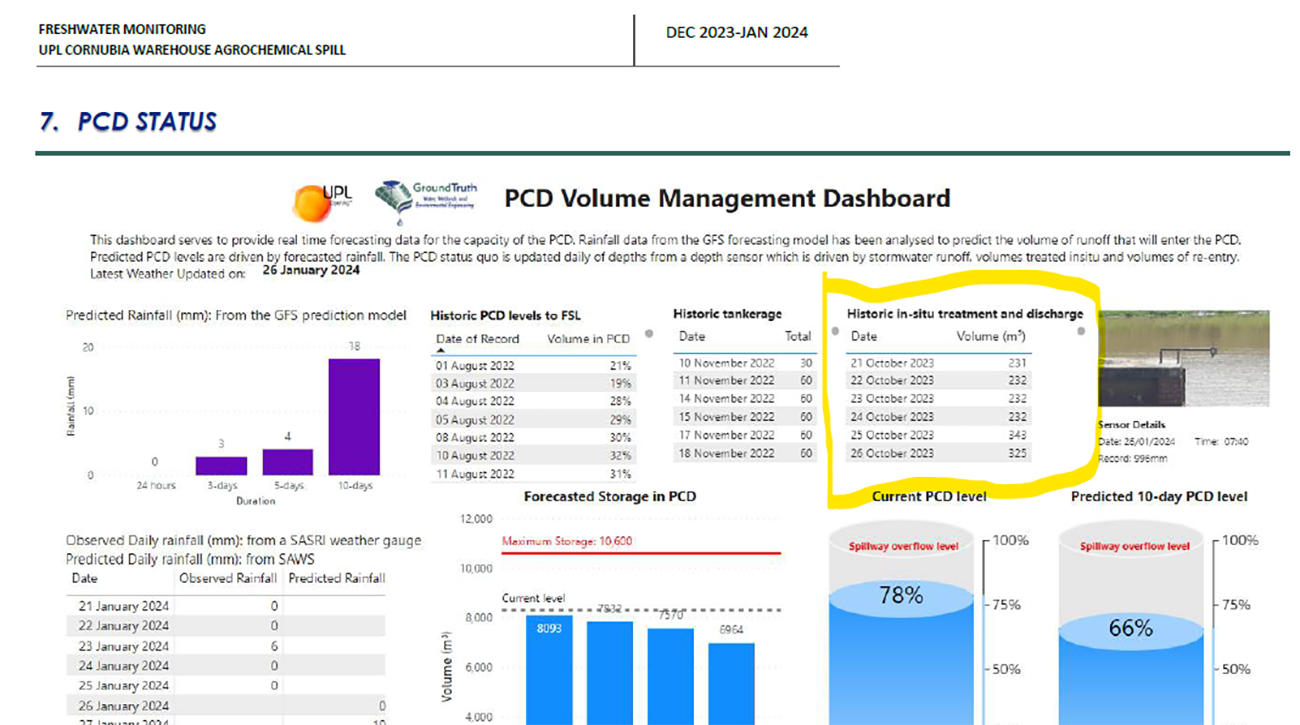 A screenshot of the UPL GroundTruth volume management "dashboard" showing historic treatment volumes from October last year. (Supplied)
A screenshot of the UPL GroundTruth volume management "dashboard" showing historic treatment volumes from October last year. (Supplied)
More than 24 hours later, UPL finally supplied the requested data – but Daily Maverick soon picked up several discrepancies between the new UPL data and previous versions loaded on to the digital dashboard.
The new discharge volumes provided by UPL for the days immediately preceding the fish kill were substantially less than half the volume previously recorded on the UPL dashboard.
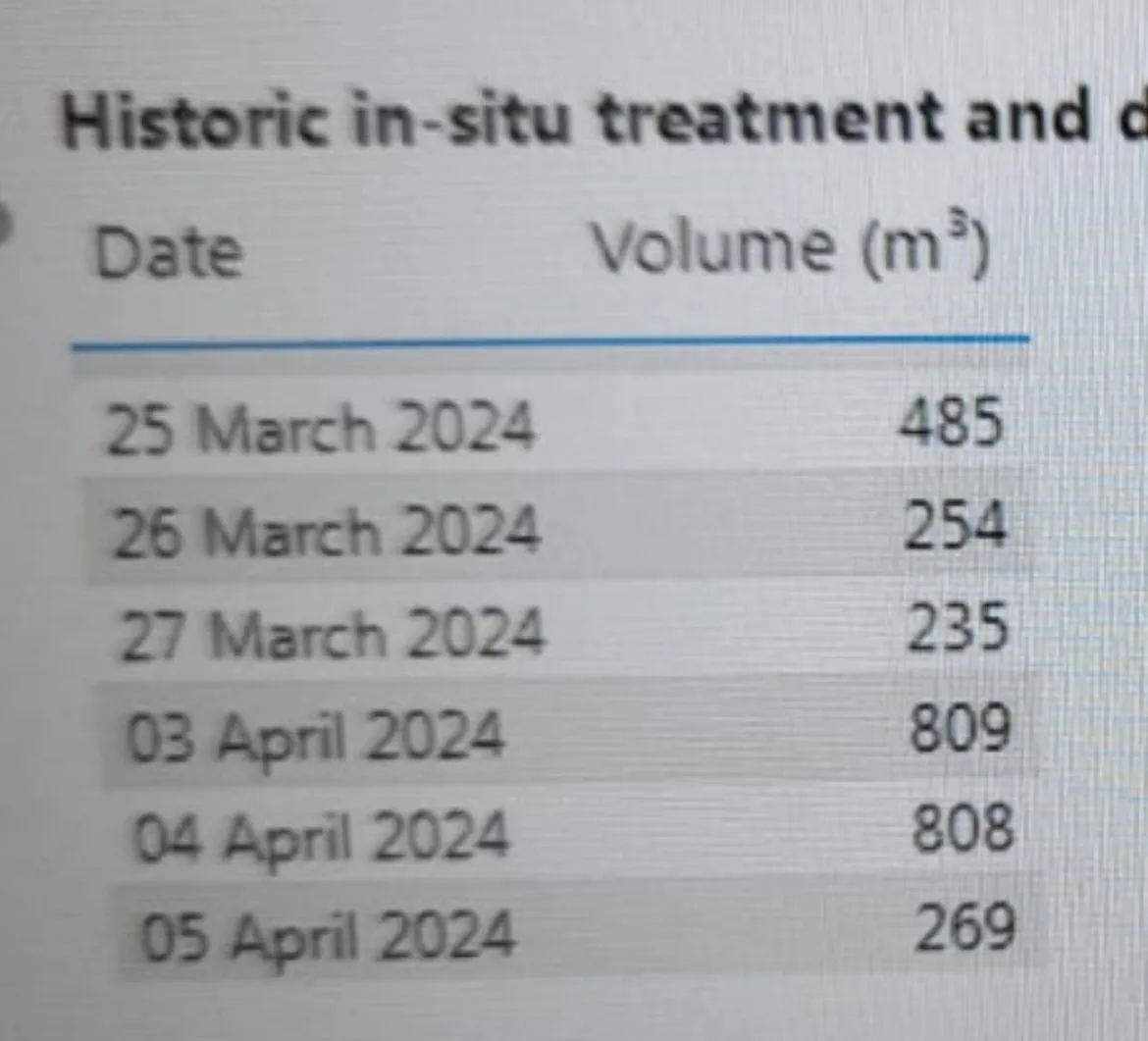 These are some of the (initial) treated water discharge volumes reported on UPL's digital dashboard between March and April 2024. (Supplied)
These are some of the (initial) treated water discharge volumes reported on UPL's digital dashboard between March and April 2024. (Supplied)
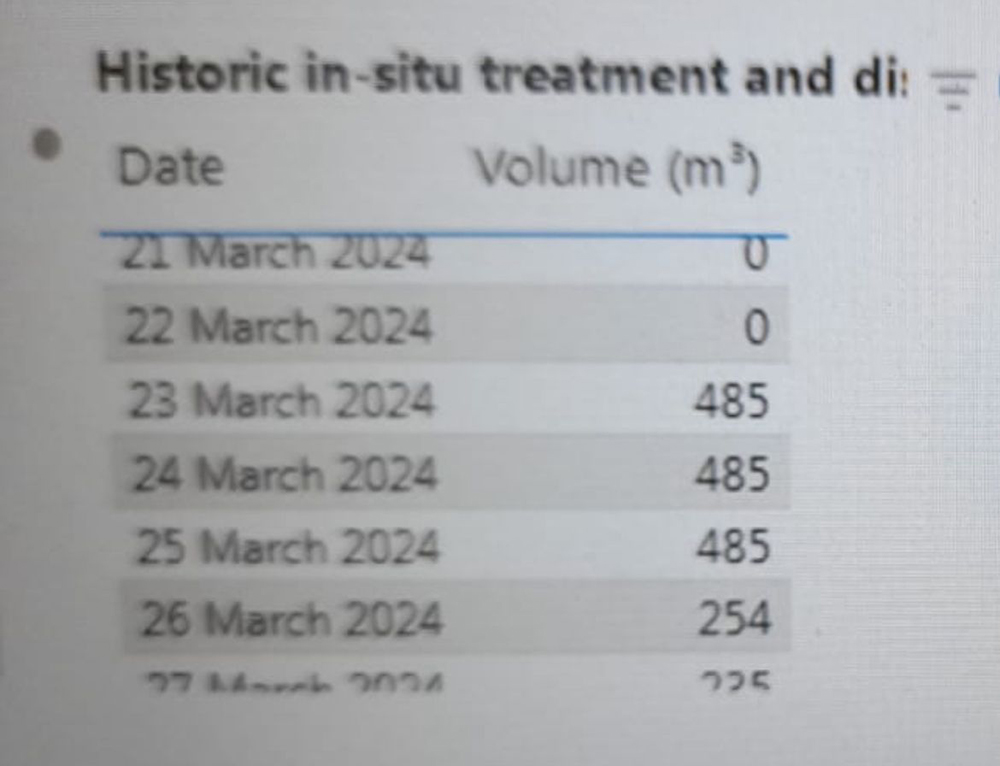 These are some of the (initial) treated water discharge volumes reported on UPL's digital dashboard between March and April 2024. (Supplied)
These are some of the (initial) treated water discharge volumes reported on UPL's digital dashboard between March and April 2024. (Supplied)
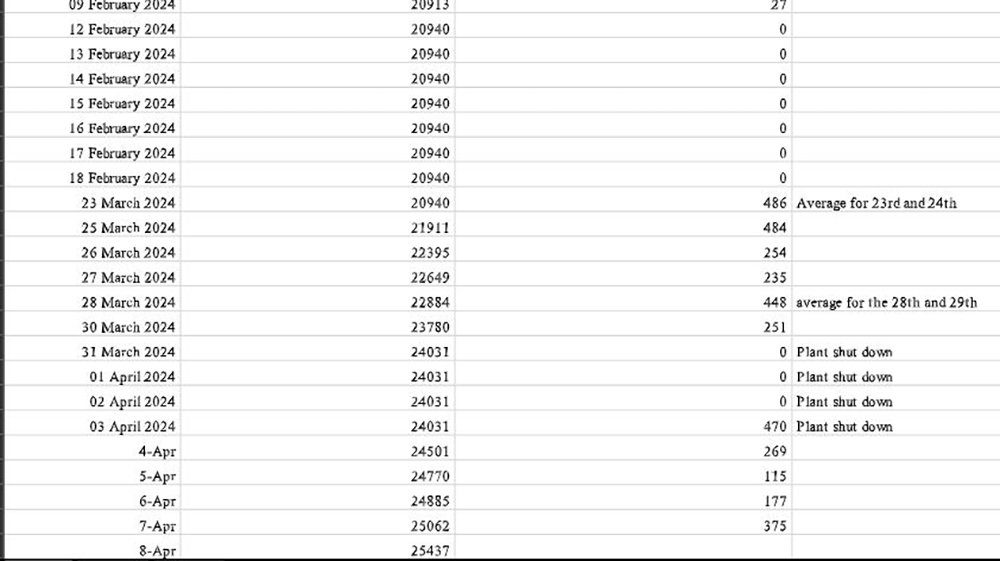 The "corrected" water discharge figures supplied by UPL. (Supplied)
The "corrected" water discharge figures supplied by UPL. (Supplied)
When we asked UPL legal representative Norman Brauteseth to explain these apparent discrepancies, he referred us to GroundTruth director Dr Mark Graham.
Graham confirmed that the data had indeed been “corrected” on 9 April, several days after the fish kill was reported.
Asked on Tuesday to explain the reasons for the changes, Graham said that a plant operator at the site manually recorded daily input and discharge volumes at the treatment facility.
The plant engineer also visited the site on a regular basis to record data, by photographing the water flow meter before transmitting the data to GroundTruth staff for uploading to the digital dashboard.
However, said Graham, due to fluctuating work commitments, the plant engineer was not always able to visit the plant at the same time every day – or even on a daily basis – to photograph the flow meter.
For example, said Graham, the engineer might visit the treatment plant at 8am on a Monday and then again at 5.30pm on a Tuesday, or possibly only at some point on a Wednesday.
As a result, the photographic records of the flow meter data did not always accurately capture the specific 24-hour time windows reported on the digital dashboard.
This was the reason the official data had now been revised and “updated”, to more accurately record the average flow volumes over recent 24-hour time windows.
We asked Graham when the data was revised.
“Today,” he said.
Graham added that the figures recorded on the dashboard were merely a provisional or “broad summary indication” of daily flow volumes as there was no electronic transmission of real-time data to the dashboard.
“It could be two to three days between the images and it could be 56 hours.”
Apparently reiterating the message of the UPL media statement blaming sewage for the fish kill, Graham said that “abundant” fish populations had been seen and recorded at three sites in the upper reaches of the estuary closer to the old UPL warehouse.
eThekwini sent us a more cautious response: “The matter is currently under investigation and the City cannot give a response based on speculation. We will await the test results from our trusted laboratory and then respond accordingly.”
The Mumbai-based agrochemicals group has also issued a statement via its corporate communications consultant, Gerhard Mulder of Resolve Communications:
“UPL South Africa shares public concern over the fish die-off recorded on the beach at the Ohlanga Estuary mouth over the weekend of April 5 to 7, which preliminary analysis suggests was caused by untreated sewage overflows, rather than substances relating to the 2021 spill.
“On Saturday, April 6, an independent environmental expert in collaboration with a Department of Water and Sanitation official investigated an area stretching from upstream of the leased UPL Cornubia site to the Ohlanga River and down to [the] start of the estuary.
“Their findings showed 100% dissolved oxygen levels upstream and downstream of the UPL site. However, testing showed a significant drop to 65% dissolved oxygen in the Ohlanga River below Blackburn village at the bridge, pointing to a factor in that area potentially affecting the river’s health.
“Further investigations revealed that a sewage overflow had occurred from the Blackburn sewage pump station and was the likely cause of low oxygen levels in this point of the river.
“This, along with the high levels of ammonia typically found in sewage, potentially led to the fish die-off,” said the statement.
“Workers at the Blackburn sewage pump station confirmed that overflow occurred between Friday, April 5, and Saturday, April 6, and was a regular occurrence. On Monday, it came to light that further similar infrastructure failures may have occurred at the Siyaba Node 2 and Waterloo sewage plants.
“In this context, UPL South Africa has again expressed concern to the municipality regarding the recurring sewage infrastructure issues.
“The elevated level of sewage is having a negative impact on the ongoing environmental remediation efforts of the Ohlanga River and the local aquatic ecosystem.
“This can only be addressed through improved communication and action from the municipality to prevent future incidents to ensure the health of the Ohlanga River and its surroundings.” DM
https://www.youtube.com/watch?v=REeWvTRUpMk




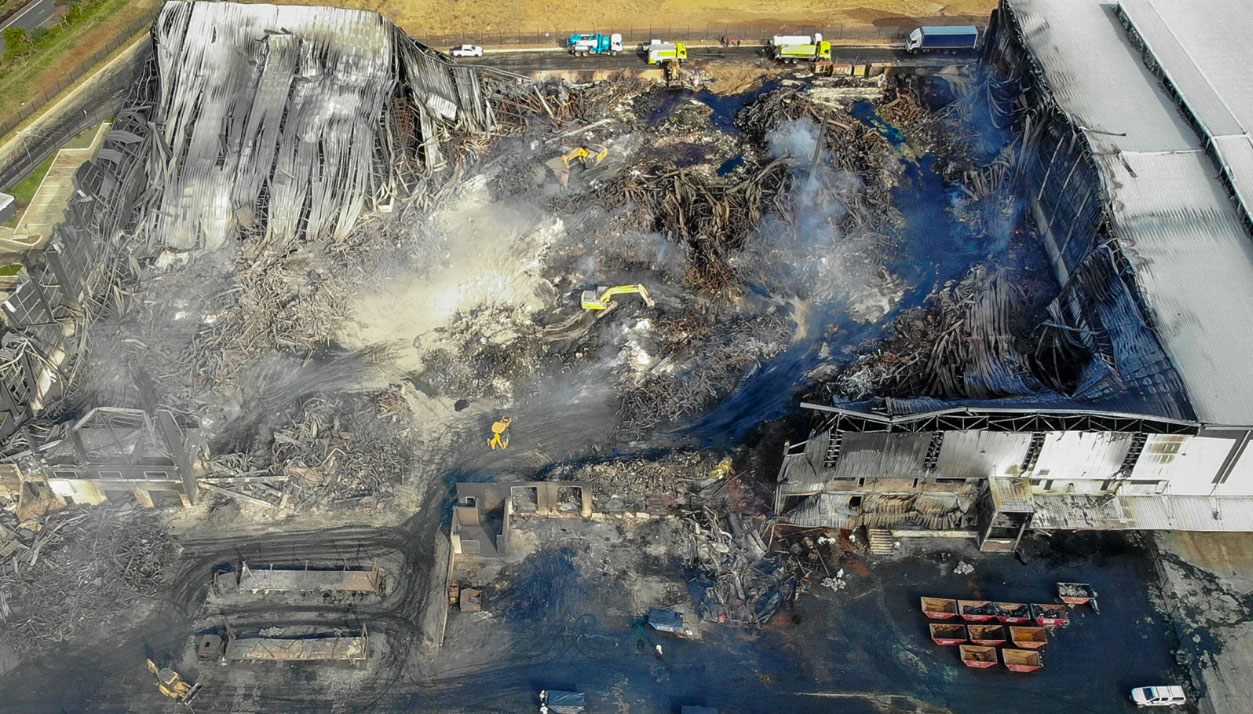 These are some of the (initial) treated water discharges reported on UPL’s digital dashboard between March and April.(Supplied)
These are some of the (initial) treated water discharges reported on UPL’s digital dashboard between March and April.(Supplied)